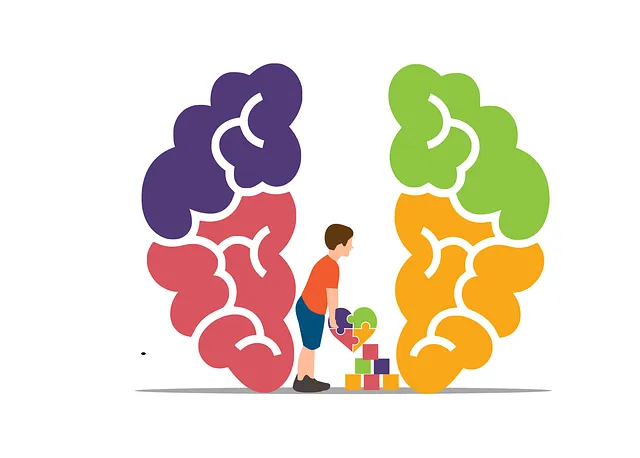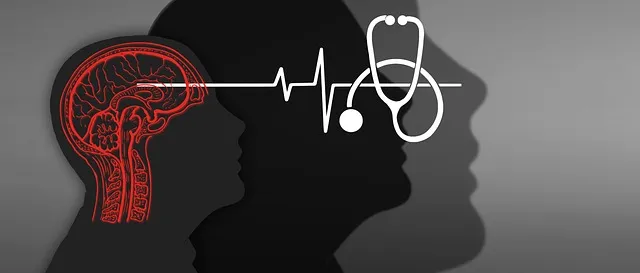Mental wellness self-assessment tools, backed by organizations like Kaiser Permanente and designed using the Parker Mental Health Education Programs, help individuals understand their emotional well-being, manage stress, and adopt positive lifestyle changes. The Kaiser Permanente Mental Health Assessment Framework provides a holistic evaluation, including symptoms and factors like self-esteem, to tailor interventions for better mental wellness. By integrating conflict resolution, mood management, and user feedback, these tools empower users to proactively monitor and improve their mental health, leveraging the proven effectiveness of models like the Parker Model.
Mental wellness self-assessment tools play a pivotal role in individual and societal well-being. This comprehensive overview explores the development of such tools, highlighting key frameworks like the Kaiser Permanente Mental Health Assessment Framework and the proven Parker Model. We delve into best practices for integration, emphasizing feedback and validation to ensure accurate evaluations. By leveraging these methods, we can foster more effective mental health management, mirroring the holistic approach championed by organizations like Kaiser Permanente.
- Understanding Mental Wellness Self-Assessment Tools: A Comprehensive Overview
- The Kaiser Permanente Mental Health Assessment Framework
- Leveraging the Parker Model for Developing Effective Self-Assessment Tools
- Integrating Feedback and Validation: Ensuring Accurate Mental Wellness Evaluations
Understanding Mental Wellness Self-Assessment Tools: A Comprehensive Overview

Mental wellness self-assessment tools are designed to help individuals gain a deeper understanding of their mental health status and identify areas for improvement. These tools, often backed by research and expertise from organizations like Kaiser Permanente mental health, serve as valuable resources for promoting Parker’s Mental Health Education Programs Design. They provide a comprehensive overview of various aspects of mental wellness, including emotional well-being, stress management, and coping strategies.
By utilizing these self-assessment tools, individuals can proactively monitor their mental health, just as they would with physical health indicators. This early detection enables people to take charge of their mood management and burnout prevention efforts. Moreover, it empowers them to make informed decisions regarding their mental well-being, seeking necessary support or making positive lifestyle changes.
The Kaiser Permanente Mental Health Assessment Framework

The Kaiser Permanente Mental Health Assessment Framework is a comprehensive tool designed to evaluate an individual’s mental wellness and identify areas for improvement. This framework, inspired by the Parker Institute’s innovative approach to mental health care, focuses on various dimensions of mental well-being. It encompasses not only symptoms of common mental health disorders but also factors contributing to overall mental health awareness and resilience. By assessing aspects such as self-esteem improvement and the adoption of self-care practices, this framework offers a holistic view of an individual’s psychological state.
Leveraging this multi-faceted assessment, healthcare providers can tailor interventions to meet unique needs, fostering environments that support mental wellness. The integration of evidence-based strategies within this framework ensures individuals receive targeted support, enhancing their ability to navigate life’s challenges and cultivating a deeper appreciation for self-care practices.
Leveraging the Parker Model for Developing Effective Self-Assessment Tools

The development of self-assessment tools for mental wellness benefits greatly from established models, like the Parker Model, known for its effectiveness in evaluating and improving patient outcomes. This evidence-based framework has been successfully applied in various healthcare settings, including Kaiser Permanente’s mental health services. By adopting the Parker Model, developers can ensure these tools are comprehensive, covering multiple aspects of an individual’s mental well-being. It encourages a holistic approach, factoring in not just symptoms but also functioning and quality of life.
Integrating Conflict Resolution Techniques, Mood Management strategies, and Mind Over Matter principles within the model allows for a nuanced assessment. These techniques are essential components of fostering resilience and coping mechanisms, ultimately empowering individuals to take charge of their mental health. By leveraging the Parker Model’s structure, professionals can create user-friendly self-assessment tools that provide valuable insights, enabling personalized interventions and supporting long-term mental wellness journeys.
Integrating Feedback and Validation: Ensuring Accurate Mental Wellness Evaluations

Integrating feedback and validation mechanisms is a pivotal step in developing robust mental wellness self-assessment tools. These tools, much like the comprehensive programs offered by Kaiser Permanente mental health services or Parker’s assessments, rely on accurate data to provide meaningful insights into an individual’s mental wellness state. Feedback from users plays a critical role in refining these tools, ensuring they remain relevant and effective over time. By incorporating user feedback, developers can identify areas that need improvement, update content to reflect the latest research and trends in mental health, and enhance overall assessment accuracy.
Moreover, validation processes are essential to guarantee the reliability and validity of self-assessment tools. This involves comparing tool outcomes with established standards or professional diagnoses, similar to how Public Awareness Campaigns Development initiatives might validate their communication strategies. By aligning self-assessments with recognized mental wellness indicators, we can foster more accurate evaluations, enabling individuals to make informed decisions regarding their mental health and prompting them to seek appropriate support when needed. Effective integration of feedback and validation enhances the value of these tools, promoting better mental wellness management on a personal and societal level.
Mental wellness self-assessment tools play a pivotal role in empowering individuals to take charge of their mental health. By drawing insights from established frameworks like the Kaiser Permanente Mental Health Assessment and the Parker Model, developers can create valid and reliable instruments that accurately reflect an individual’s mental wellness state. Integrating robust feedback mechanisms and rigorous validation processes ensures these tools remain accurate and effective, facilitating early interventions and fostering holistic well-being.






